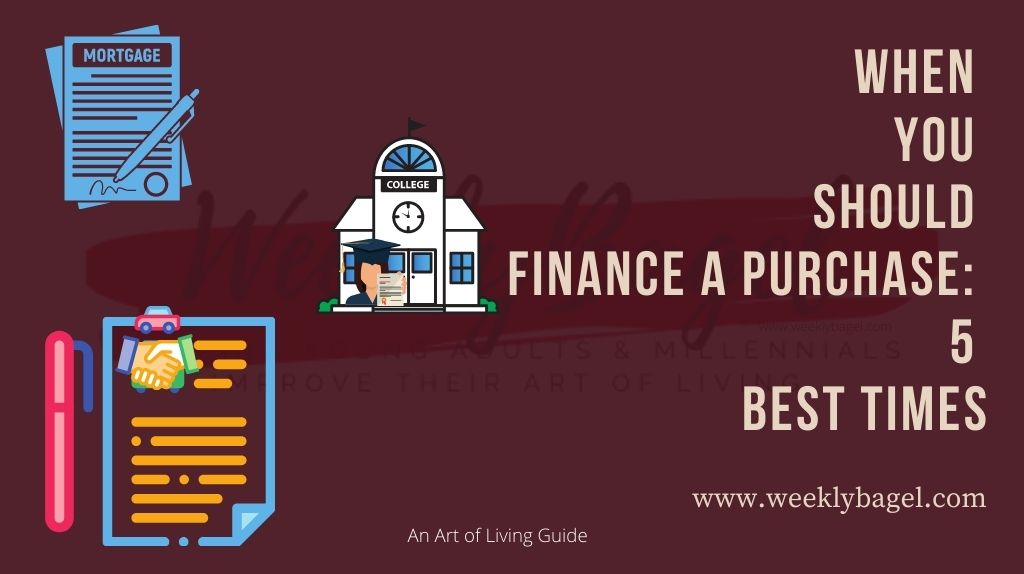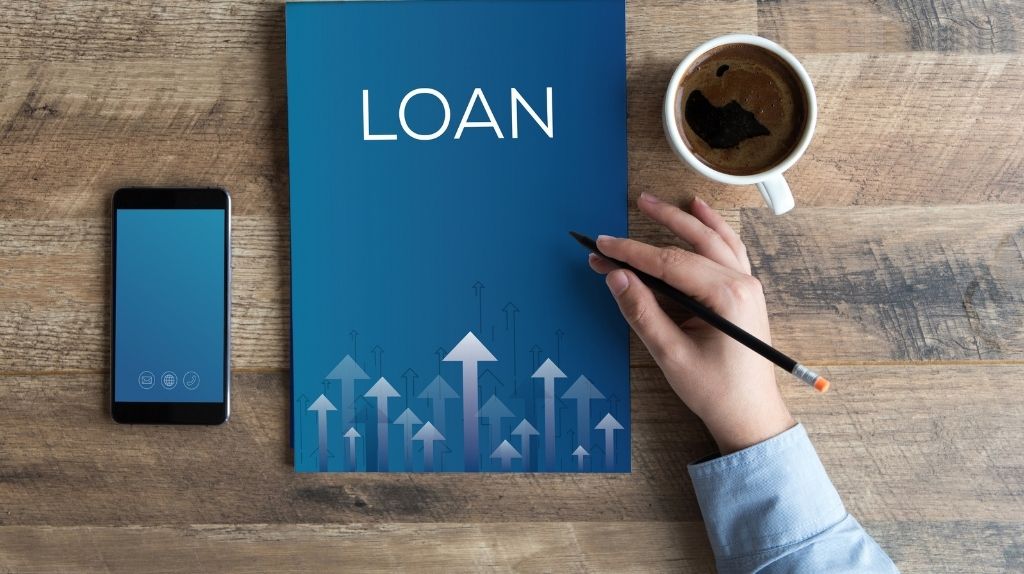
There was a time debt was an abhorrence. You know, something only reserved for assets acquisition. Nowadays, this is not the case. Financial institutions have made it very easy to borrow money for purchases ranging from important to trivial things in life. With a majority of our population lacking a knowledge on when to best finance a purchase, most of us spend half our lives paying down huge household debts as a result.
By household debts here, I refer to purchases we finance through financial institutions rather than pay cash for. Financial institutions as used here refer to banks, credit unions, credit card companies and other organizations involved in monetary transactions.
According to a 2020 Fourth Quarterly Report On Household Debt And Credit by the Federal Reserve Bank of New York, there was a 1.4% rise in Household debts since the third quarter of 2020. This was in the amount of $206 billion. As of the fourth quarter of 2020, the total debt stood at $14.56 trillion from 2019 $14.14 trillion household debt.
What have these statistics got to do with the best times to finance a purchase?
Well, you contribute to the above total debt when you finance the wrong product. Or even worse, finance a purchase when you are to pay with cash. Automatically, you join a statistics of people spending a huge amount of their life time and income paying down unnecessary debts. With that said, here are when you should finance a purchase in order to avoid incurring unnecessary debts.
When Is It Okay To Finance A Purchase
These are the best times you should finance your purchase. Besides these times, try to pay your purchases with cash to avoid mounting debts in your household.
1. Building Your Credit Score Through Financing A Purchase
In the United States of America, credit is king. This is because credit can help you establish money cows, when it is used properly. Without a good credit, it is hard to get financial institutions or businesses to finance a transaction for you. Usually, these monetary organizations run a financial background check on you before giving you access to their funds. In situations where your credit is bad, you will not be trusted with their money.
Hence, the importance of a good credit. So, does buying on finance affect your credit score?
Yes, buying things on finance affect credit ratings. Financing a purchase is a great way of building your credit score. It enables you to build a credit history, since you will be paying installments on the borrowed money over a period of time. A good example of this kind of expenditure is the use of a credit card for a transaction. Note the word I used- a credit card, not a collection of credit cards.
Undoubtedly, this is important since a reliance on a collection of credit card can drastically increase your household debt. This is especially in cases where your monthly income does not warrant the use of a credit card. Meaning- you either do not need a credit card as a result of your high monthly income or you do not need it due to your low monthly income.
If your goal is to improve your credit score with credit card purchases, a single credit card can help you achieve this. Make sure you keep the credit card expenditure under $20 monthly. Then, get the installments stretched over 10 months with a 25% monthly minimum repayments. This is to be able to create a steady payment history, which will gradually increase your credit ratings in the assigned period.
Before you borrow money from a credit card to pay for a transaction, there are things you must consider though. Consider your ability to pay back any debt incurred in the credit card, before making the purchase. Also, make sure your credit card does not have a high interest and hidden maintenance fees. To avoid making these kinds of mistake, check out 6 Important Research Before Getting A Credit Card.
2. Financing A Small Business Expansion, Purchase Or Operations
Small businesses are like plants. They grow with time. Sometimes, their growth requires the expansion of new departments and into new locations. This includes new human resources and structures. All these cost money, which may not be paid in cash.
Does that necessitate finance through financial institutions?

Hell yeah. If a small business with $250,000 in annual profit, a high service demand and a little store choose to expand their existing structure, it could cost more than $250,000. Therefore, the need to get a financial institution to finance the expansion expenses.
Moreover, there are other expenses in business which require financing. A notable example is a sudden inventory purchase which requires a purchase order financing. A purchase order finance is a fund provided by financial organizations for your business which lack cash flow to buy inventory from your suppliers during high demands for your products. This is necessary, since your business does not have the immediate resource to purchase the inventory and send to customer.
So, a PO Finance company finances the purchase from supplier, who will send to the customer. The customer pays the PO Finance institution who will take their money and expenses, then pay your business’s inventory cost. Without this finance means, your business will may lose its long-time customers to other competitors due to your inability to supply demands on time.
Speaking of financing business expansion or operations, I will not recommend financing your business at its early stages. By early stages, I mean its startup or idea stages. This is because your business has not acquired a huge customer base. It has neither broken even , nor generate the profit necessary to convince financial institutions to finance you with low interests.
Besides, you risk incurring a huge debt by financing at such a stage. In case of a bad economy or wrong business decision, your business will be ruined. Then, you will end up owing a lot of debt. Not just owing a lot of debt, but also mounting interests on the borrowed money.
That is a lot of headache for one person, isn’t it?
To repeat, do not finance purchases unless it is for a business expansion or operations. This is especially in a case, where the existing business has created the supportable financial structure to warrant such a decision. Meaning- a steady revenue and a positive profit.
3. Auto Purchases In the Absence Of Cash
I am not a huge fan of financing Auto purchases, but we do not have a choice sometimes. Do we?
As of the fourth quarter of 2020, Auto debt increased by $14 billion. This is a result of buying cars through loan financiers. In fact, a Title Loan Statistics states two million American cars are repossessed annually. Also, it finds there are more cars being repossessed than new cars being sold. That is a 65% rate of repossession versus new car sales.
Wow! Why finance an Auto purchase then?
Well, we do not always have the full cost of an Automotive in cash. Hence, the need to get someone else to pay for them on our behalf with the agreement of paying back the debt with some interest. To avoid being included in the above statistics of Auto debtors, put down 35% of an Auto cost. This action does two things for you.
Firstly, it lowers your debt interest since you made some down-payments. Secondly, you will not be burden by the size of your monthly repayments. Always seek to put yourself in a position where you can get a low interest rate. Or better, easily pay back the loan. The last thing you want is to default on a loan during a personal or financial crisis.
4. Real Estate and Valuable Assets Purchase

Unless you are very patient, saving 100% percent of new house or building may take a long time for the average income earner. This is why a lot of people opt-in for mortgages. For a household which makes about $60,000 a year, it is going to take a decade to raise $200,000 to buy a house with $20,000 annual savings. However, mortgages can help you reduce the time as long as you can commit a down-payment on such assets.
Am I discouraging you not to pay cash on a house purchase, dear reader?
No, it is not my intention here. If you could afford to buy a house with cash, go for it. In fact, you will secure yourself one of the best forms of long-term investments in the world. But hey, not everyone can afford paying cash for a house. Furthermore, everyone does not have the patience to wait decades to raise the money for a house. There is no guarantee you can buy the house at the same price. Hence, the need to use a financial institution to finance the house purchase rather than save for cash payment.
Similarly, the same goes for other tangible assets like art, equities and such. If you are going to finance a purchase, let the purchase be an asset which appreciates with time. Make it a principle to pay cash for objects which depreciate as soon as you leave the store or dealership with it. The goal here is not to finance a thing you can afford to lose.
5. Education Financing
Ever heard the saying, “All college majors are not equal”?
Well, it is another way of saying that all school fees are not the same. There are some college majors which you can pay out of pocket to study. And, there are others you cannot pay with three jobs. In this case, it is a good idea to finance such an academic venture since it tends to pay back its cost with time.
Let me illustrate.
A major like law has an average cost of $28,186 for public (residents), $41,628 for public (non-residents) and $49,312 for private schools. This is according to a 2019 Norminal Tuition averages for ABA-approved schools. For someone who is an out-of-state public college resident, $41,628 tuition is difficult to pay out of pocket. By out of pocket, I mean paying from your monthly income or jobs.
Clearly, there is an exception for students with wealthy parents. For the rest of us, we cannot pull funds out of our asses. Therefore, such majors call for education financing- aka student loans.
Unquestionably, consider the rewards of any college major prior to getting your education financed. This is to avoid being stuck with a huge debt and a mounting interest. If you could, avoid an expensive useless major. Only finance an education which will pay you six to ten times its costs within a decade. You will be needing such amount to pay back your loan and its interest.
All these considered, the above are when you should consider financing a purchase. If you observe closely, these above situations are necessary expenditures. Not only are they necessary, but also expensive enough to warrant financing. Try not to borrow money to finance something which depreciates in value with time. If you could, save the amount and pay cash. Financing trivial purchases is one of the easiest ways of digging your financial grave. And, I do not want that for you.
Resources
FEDERAL RESERVE BANK OF NEW YORK RESEARCH AND STATISTICS GROUP. “Quarterly Report On Household Debt And Credit- 2020: Q4 (Released February 2021).” Center For Microeconomics Data. https://www.newyorkfed.org/medialibrary/interactives/householdcredit/data/pdf/HHDC_2020Q4.pdf
Title Loans. “Car Repossession Statistics 2019-2018 & 2017.” Title Loans, Title Loans, 2 Dec. 2019, www.titleloanser.com/stats/car-repossession-statistics/.
“Law School Tuition in the United States, 1985 – 2019 – LST Data Dashboard.” LST, data.lawschooltransparency.com/costs/tuition/.




 How To Save Money For Vacation On A Low-Income
How To Save Money For Vacation On A Low-Income